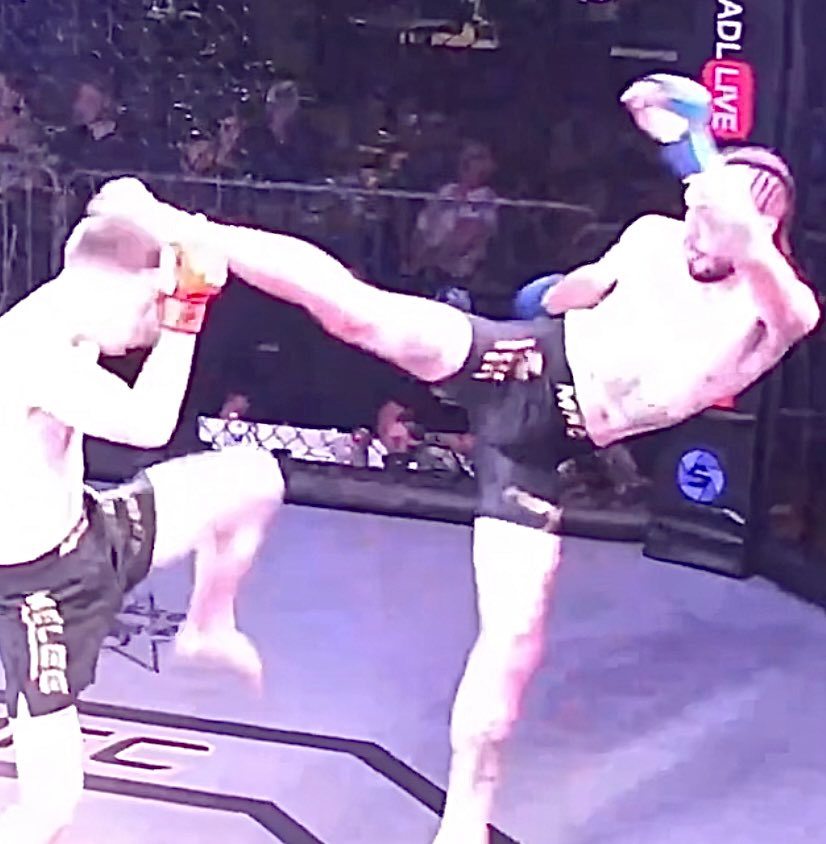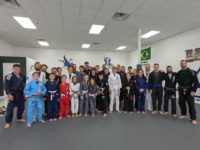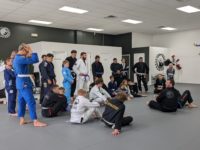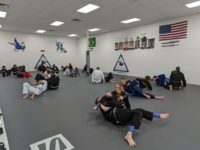Professor Alex was lucky enough to visit our affiliate in Somerset, Kentucky again to give a seminar on finishing arm bars to very excited crew. Many of the topics from the “Finishing Arms Bars” video were discussed and the students soaked it all up.
Learning to Lose in Combat Sports

As a coach of Brazilian Jiu Jitsu and other combat sports, I sometimes have to coach my athletes through losses. Losing is a normal part of competition (unless your name is Gordon Ryan) and we all have to learn how to deal with and work through losses. It’s not fun, becasue who LIKES to lose? However, losing often creates the greatest opportunity for growth as an athlete and person.
First, losing gives competitors the chance to reflect on what went wrong. When an athlete loses a game, fight, or competition, they can reflect on what went wrong and what they can do better in the future. This self-reflection is a vital step in the learning process since it enables athletes to pinpoint their areas of weakness and make the required improvements.
Second, and VERY important; losing can teach athletes humility and perseverance. In combat sports, there will always be someone out there who is better. Losing can be a humbling experience, but it can also be a motivator to work harder and improve. It takes perseverance to keep going after a loss (or losses), but the athletes who are able to do so are the ones who ultimately succeed. Personally, I never won a gold medal until I was a purple belt. Then something changed and I became the competitor I was striving to be the whole time.
Also, the act of coompetiting at all gives opportunities for athletes to gain experience. Every match or fight is a learning opportunity, regardless of the outcome. Athletes can gain valuable experience by competing against opponents of all skill levels.
Finally, losing can help athletes develop mental fortitude. Combat sports are as much about stick-to-it-iveness as it is about physical strength. The ability to bounce back from a loss can build a resilience and mental toughness that can’t be attained other ways.
While losing can be tough, it’s important for athletes to view it as a learning opportunity. As a coach, I encourage my athletes to live in their losses and use them as motivation to improve. By learning from their mistakes, developing humility and perseverance, gaining experience, and building mental toughness, athletes can ultimately become better competitors and achieve their goals.
Written by: Professor Alex Henley
How to remain relevant in Competition
Jiu Jitsu has become one of the most popular martial arts in the world, with practitioners of all ages training in the art of grappling. Austin, TX is known for being a hub of jiu jitsu training, with some of the world’s top grapplers being recent transplants. This makes it an ideal location for jiu jitsu practitioners to train and compete, but it also means that the competition is fierce. To succeed in this environment, a jiu jitsu school must raise its level of preparedness for competitions.
Preparing for competitions in jiu jitsu requires a combination of physical, mental, and strategic training. Physical training is essential to develop strength, endurance, and agility, which are all necessary for high win rates. Mental training helps competitors develop focus, concentration, and a winning mindset. Strategic training involves developing game plans, practicing specific techniques, and even studying opponents and scenarios.
The first step in raising the level of preparedness for competitions is to identify the areas that need improvement. A jiu jitsu school in Central Texas may have talented instructors and athletes, but they may lack the necessary physical conditioning to compete at a high level. Alternatively, the school may have individuals who are physically fit, but who struggle with others aspects of competition.
One of the most effective ways to raise the level of preparedness for competition athletes is to increase the intensity and frequency of training. Competitions are physically and mentally demanding, and practitioners must be prepared to push themselves beyond their limits. By increasing the intensity and frequency of training, competitors can develop the necessary physical and mental readiness to succeed in all competitions.
In addition to physical and mental training, strategic training is also essential for success in competitions. This involves developing game plans, practicing for specific scenarios, and sometimes sstudying opponents. Competitors must be prepared to adapt to different opponents and situations, and strategic training is essential to developing this ability.
Overall, raising the level of preparedness for competitions in jiu jitsu requires a comprehensive approach that addresses physical, mental, and strategic training. For jiu jitsu schools in Central Texas this means developing a training program that is tailored to the specific needs of their practitioners and that prepares them to compete at the highest level. With the right preparation, Insight BJJ can remain one of the best competition schools in this region of jiu jitsu excellence.
- « Previous Page
- 1
- 2
- 3
- 4
- 5
- 6
- …
- 26
- Next Page »



